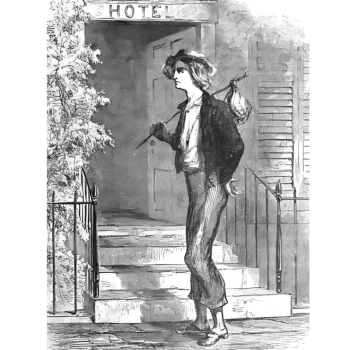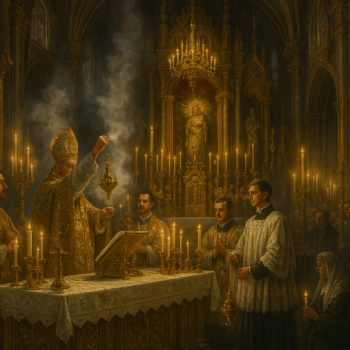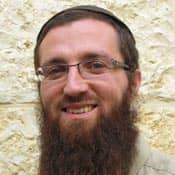Note: Rabbi Eli will be lecturing in the New York and Toronto areas in the coming weeks. To book a presentation or consultation, contact him at [email protected].
The term Beit Haknesset is often translated in English to mean synagogue. However, the Beit Haknesset is really intended to be much more than that. Not only is it an area designated for prayer, but it is a place for all community gatherings and events. As a more literal translation of the term indicates, House of Ingathering, the Beit Haknesset is in fact an all-inclusive Jewish community center—a place that ultimately serves to bring together and unify the Jewish community.
If we are to focus, then, on what it means to be a Jewish community, it seems we come right back to the synagogue concept. That is, since the Jewish community has many needs in common with non-Jewish communities, when focusing on the Jewish community center, that which makes it uniquely Jewish is what stands out.
Therefore, given that the purpose of the Jewish people is to bring God-awareness into this world that is lacking in God-awareness, the structure that has been designated for and facilitates this lofty goal assumes holiness. Holiness is brought onto a structure or vessel by its being both dedicated to and used for perception of God, and involvement with Him. (It is specifically the combination of designation and use that brings on holiness: Designation is thought-oriented and beyond base physicality. Use is action-oriented and within base physicality. Together they bring on holiness since, as we have mentioned, to be holy is to exist within the God-unclear physical realm while living with the God-clarity of "beyond" the physical realm.) Consequently, we refrain from purposeless and frivolous activities in the Jewish community center since this is a place that is dedicated to a higher purpose and, thus, involvement in anything else would undermine and nullify that designation and dedication.
Designation
Accordingly, there is a focus in Judaism on designation and the following-up on that designation. Two examples are the dictum to set times for Torah learning and to have a designated seat where one prays and/or learns Torah.
Whereas praying and learning wherever and whenever one has the impulse is meaningful on the one hand, it indicates one's spiritual life to be a matter of convenience and happenstance. The designation of a particular time or place for prayer or for Torah learning is to live with these as permanent cornerstones of one's life. The commitment to and permanence of these spiritual matters become something that defines the person. Not only is he involved them once in a while—he is rooted in them. Not only are they something that he is involved with—involvement with them is something he personifies.
(Again, this is not to take away from the added value of spontaneous learning and prayer. Rather, here we are outlining the value and advantage of designated learning and prayer. Certainly, both of these are essential to a Jewish life of spirituality and personal growth.)
Spiritual Stubbornness
This persistence and stubbornness is considered spiritual since, instead of being blown by the winds of change that take place within one's self or one's surroundings, the devoted individual rises above all to fulfill his commitment.
In every arena in our lives, it is specifically the people who are stubborn about the right things that gain our respect and admiration. We have a high regard for the person who does not get angry when things don't seem to be going his way. We are in awe of the individual who lives beyond his physical desires.
It is true that the person who does one great act has done something exceptional, but the person who lives greatness is on a whole other level. The idea of a set time and a set place to where one learns or prays is a path to sanctifying that time and place in one's own life.
The Face of God
Additionally, the concept of each person having a set place in the community's center reflects the fact that each person has his set place in the community that is unique to him. That is, in the Jewish community, where the goal is exemplifying God in the world, each soul is unique, having its own gifts and purpose for being here on planet Earth. Therefore, by actualizing its potential and manifesting itself, each soul brings about a new form of God-expression, thereby opening up a new angle by which God can be perceived. In a sense, each soul is a unique portal of God-perception for the entire world.
In that respect, we are each a mini-"face" of God. Just as the face is the part of a person by which he is identified, the concept of seeing God's "face" is the ability to identify God as the orchestrator of that which one is seeing. When the individual expresses his soul-side, he portrays his unique Godliness and acts as a "mini-face" of God. The role of the Beit Haknesset is to bring all of these unique mini-faces of God together in unison thereby manifesting the collective face of God, which is the ultimate expression of the Jewish people's role as Light Unto The Nations.




